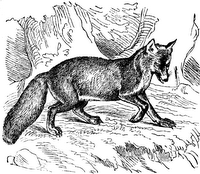 There was a Snail who was painfully shy and timid.
There was a Snail who was painfully shy and timid.“You know what your trouble is,” said the Blackbird, “you’re far too insular and self-possessed, too reticent and retiring. You need to come out of your shell more.”
“More?” said the Snail. “I’ve never come out of my shell!”
“You haven’t?” asked the Blackbird in mock-amazement. “My dear! What have you been doing?”
“No a lot,” replied the Snail feeling awkward and embarrassed.
“Well then,” the Blackbird enthused, “You really mustn’t delay any longer! You need to come out and enjoy a bit of freedom!”
“I’m not sure,” hesitated the Snail. “I certainly couldn’t do it with you watching… I'm far too shy and bashful…”
“I understand, of course,” replied the Blackbird, “but supposing I were to look away?”
“Then," said the Snail after some deliberation, "I guess I might be able to manage it.”
“Good!” said the Blackbird, turning around and savouring the prospect of the effort-free lunch that he would soon be enjoying. “Just let me know when you’re out...”
The moment the Blackbird’s back was turned, the Snail silently slithered away and hid herself amongst a pile of several dozen large stones.
“Are you ready yet?” asked the Blackbird but there was silence and when, at last, he turned around there was no sign of the Snail anywhere.
The next few minutes proved two things: that snails are much better off not coming out of their shells and that a blackbird’s beak bashed against several dozen large stones will eventually break.
© Brian Sibley 2007







